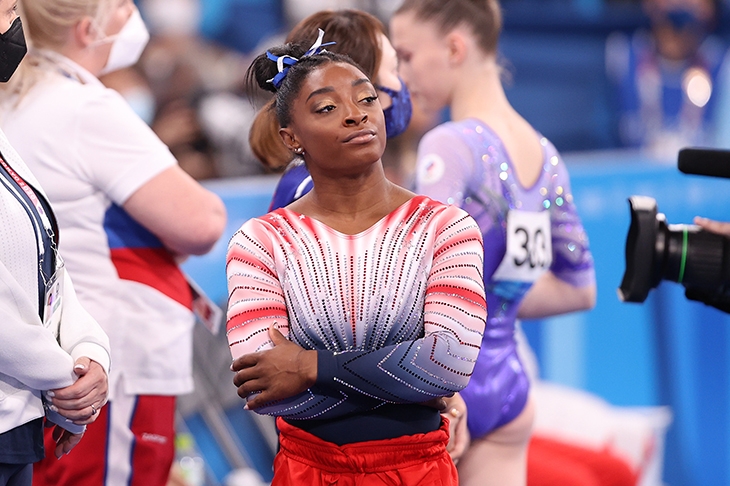The outstanding gymnast Simone Biles has pulled out of several Olympic events, saying: ‘I just don’t trust myself as much any more.’ Many took the view that this was a fashionable ‘mental health’ issue. Ancient Greeks might have come up with a rather different analysis.
Plutarch (c. AD 100) is said to have been the author of a letter of condolence to one Apollonius whose son had just died. In it he considered how best one should react to loss in the context of the whole field of human suffering, which Greeks regarded as the common lot of all mankind. For example, Achilles in the Iliad claimed that Zeus possessed two storage-jars, one filled with evil, the other with blessings. A man could be served from the jar of evil alone, or from a mixture of both. There was no other option.
For Plutarch, two inscriptions at Delphi ‘indispensable to living’ were the key to dealing with such inescapable misfortune: ‘know yourself’ and ‘nothing in excess’. Bearing those in mind, a man was able to ‘adapt to life’s circumstances’ and ‘respond to them intelligently’ because he was aware of the limitations imposed on him by the very fact of being human.
That is the point about Biles. She has for a very long time been doing what no athlete has ever done before and, as a result of her recent experience, may have concluded that the extraordinary demands she has made on her mind and body in search of success have become excessive. Knowing, then, that she has been pushing herself to the utmost limits of the possible, she may well feel it is not in her interests to do so any more.
Reaching that decision would not be an issue of ‘mental health’. It would be the result of mature, intelligent reflection on her capacities, a self-awareness in line with the Delphic maxims: understanding at this point in her career what she can do (‘know yourself’) and what she cannot (‘nothing in excess’).
She might, of course, decide it is simply a case of reculer pour mieux sauter. Perhaps it might be a more life-changing move. Whatever it is, though, she will always be one of the true athletic greats.
This article was originally published in The Spectator’s UK magazine. Subscribe to the World edition here.


















